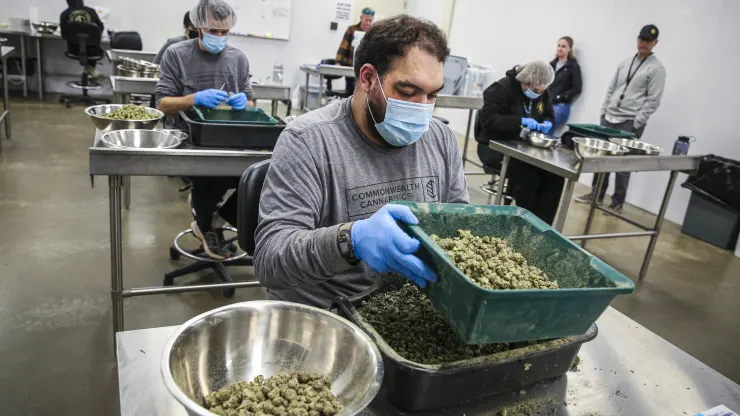HHS calls for easing restrictions on marijuana, sending cannabis

According to a spokesperson for the Drug Enforcement Administration, the Department of Health and Human Services has recommended reclassifying marijuana as a lower-risk drug, which would ease restrictions on the budding industry.
The Controlled Substances Act currently classifies marijuana as a Schedule I drug, which means it has no currently accepted medical use and is highly addictive. In spite of marijuana’s legalization as a recreational drug in nearly half of states, it is classified as a Schedule II drug, along with heroin and LSD.
As investors turn away and capital dries up, the industry is in free fall after enjoying a sales surge during the Covid-19 pandemic. Also, the industry is not allowed to access most banking services or trade across state lines, which has led to a glut of cannabis in many states and a drop in prices.
Cannabis, a multibillion-dollar industry in the U.S. and a cash crop in many newly legalized states, could potentially benefit from a federal reclassification.
A DEA spokesperson said that the HHS demanded marijuana be reclassified under the Controlled Substances Act in a letter addressed to DEA officials. Bloomberg reported that the recommendation called for marijuana to be reclassified as a Schedule III drug, which means it has a moderate to low potential for physical and psychological dependency.
Controlled substances are regulated by the DEA, which has the final authority to reschedule marijuana. According to the DEA spokesperson, a review of the drug is now in the works.
Cannabis businesses in states where recreational sales are legal cannot access traditional banking services or institutional capital because of a lack of federal regulation. A congressional bill called the Secure and Fair Enforcement Banking Act, or SAFE, would lift such restrictions but hasn’t made it through the Senate, despite passing in the House several times.
